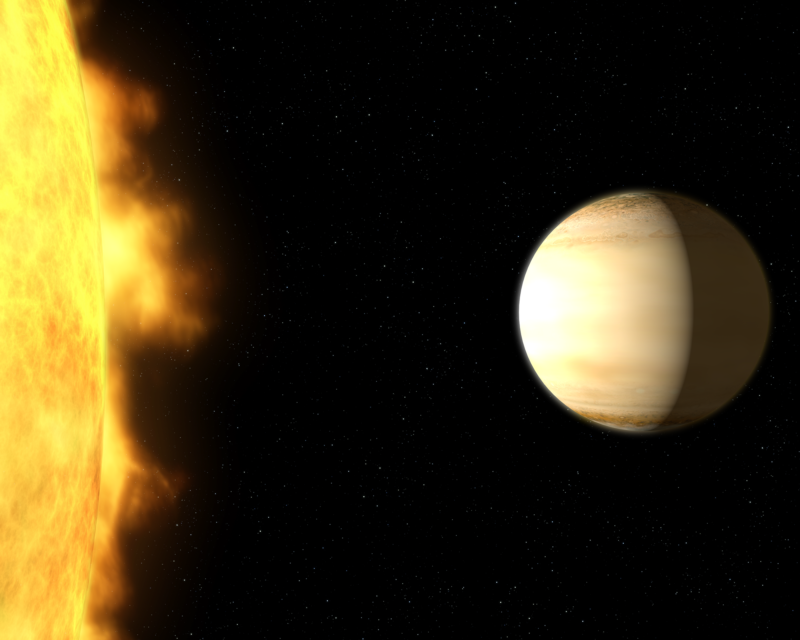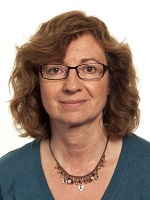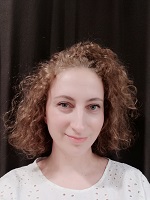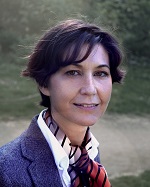Planetary Atmospheres Symposium

- Date
- Tuesday 4 June 2019, 12:30 - 17:30
- Venue
- School of Chemistry LT A
- Speaker
- Professor Dan Marsh, Priestley Chair
The Priestley International Centre for Climate invites you to this half day symposium on planetary atmospheres. The symposium will explore whole atmosphere chemistry, upper atmosphere composition, space weather and the link to climate change.
Please register to attend here.
The programme includes talks by University of Leeds Academic Fellows, Dr Catherine Walsh, UAF in Protoplanetary disks and exoplanetary atmospheres; Dr Daniel Stone, NERC Independent Fellow and Dr Olja Panic', Royal Society Dorothy Hodgkin Fellow.
Invited external speakers are Prof Lesley Gray, Professor of Atmospheric Physics, University of Oxford, and Prof Giovanna Tinetti is Professor of Astrophysics at University College London.
We will close the day with the inaugural lecture of Professor Dan Marsh, Priestley Chair in Comparative Planetary Atmospheres, introduced by University of Leeds Vice Chancellor Sir Alan Langlands.
Biographies
 Professor Dan Marsh joined the Priestley International Centre for Climate as the Chair in Comparative Planetary Atmospheres in January 2018. He holds the position jointly in the School of Physics and Astronomy and the School of Chemistry at the University of Leeds. Dan divides his time between Leeds and the National Center for Atmospheric Research in Boulder, Colorado, where he is a senior scientist and heads the Multi-scale Chemistry Modeling Group. Dan’s research interests are in planetary atmospheres, whole atmosphere modeling, climate change, upper atmosphere composition and space weather.
Professor Dan Marsh joined the Priestley International Centre for Climate as the Chair in Comparative Planetary Atmospheres in January 2018. He holds the position jointly in the School of Physics and Astronomy and the School of Chemistry at the University of Leeds. Dan divides his time between Leeds and the National Center for Atmospheric Research in Boulder, Colorado, where he is a senior scientist and heads the Multi-scale Chemistry Modeling Group. Dan’s research interests are in planetary atmospheres, whole atmosphere modeling, climate change, upper atmosphere composition and space weather.
 Professor Lesley Gray is Professor of Climate Dynamics in the Physics Department of Oxford University since 2010 and a Senior Scientist and Board Member of the National Centre for Atmospheric Science. She has held previous posts as Professor of Meteorology at the University of Reading and in the Space Science Department of the Rutherford Appleton Laboratory. Lesley's research is focused on understanding mechanisms of naturally-induced dynamical variability in the Earth's atmosphere and its impact on our weather and climate, including impacts of the 11-yr solar cycle, the Quasi Biennial Oscillation and Stratospheric Sudden Warmings.
Professor Lesley Gray is Professor of Climate Dynamics in the Physics Department of Oxford University since 2010 and a Senior Scientist and Board Member of the National Centre for Atmospheric Science. She has held previous posts as Professor of Meteorology at the University of Reading and in the Space Science Department of the Rutherford Appleton Laboratory. Lesley's research is focused on understanding mechanisms of naturally-induced dynamical variability in the Earth's atmosphere and its impact on our weather and climate, including impacts of the 11-yr solar cycle, the Quasi Biennial Oscillation and Stratospheric Sudden Warmings.

Dr Olja Panic' is a Royal Society Dorothy Hodgkin Fellow at University of Leeds. She investigates the origins of the diversity of exoplanetary systems by studying their birth places - the deepest and densest interiors of protoplanetary discs. She carries out her research by developing state-of-the-art physical models of discs and obtaining sensitive observations with the Atacama Large Millimeter/Sub-millimeter Array (ALMA). She is an active member of the science working groups of ARIEL, mission of the European Space Agency which holds the promise of characterising exoplanetary atmospheres in the near future. Olja graduated from the University of Bologna, Italy, in 2005 and obtained her PhD at the University of Leiden, The Netherlands in 2009. She then won a European Southern Observatory Fellowship at ESO Garching, Germany. At ESO, she supported the deployment of ALMA as a member of ALMA Science Verification and Commissioning Team. In 2015, Olja Panic' was awarded the Royal Society Dorothy Hodgkin Fellowship, which she held initially at the University of Cambridge and currently in Leeds, as an academic staff member.
 Dr Daniel Stone is a University Academic Fellow in the School of Chemistry at the University of Leeds and holds an Independent Research Fellowship from the Natural Environment Research Council, UK. His research interests focus on the chemistry of reactive species in atmospheric and combustion chemistry. Prior to his fellowship, Daniel was a post-doctoral researcher at the University of Leeds and the University of Manchester. He obtained his PhD and undergraduate degree in Chemistry from University College London.
Dr Daniel Stone is a University Academic Fellow in the School of Chemistry at the University of Leeds and holds an Independent Research Fellowship from the Natural Environment Research Council, UK. His research interests focus on the chemistry of reactive species in atmospheric and combustion chemistry. Prior to his fellowship, Daniel was a post-doctoral researcher at the University of Leeds and the University of Manchester. He obtained his PhD and undergraduate degree in Chemistry from University College London.
 Prof Giovanna Tinetti is Professor of Astrophysics at University College London and Director of the new UCL Centre for Space Exoplanet Data at Harwell. She is the Principal Investigator of ARIEL, the European Space Agency's next medium-class (M4) science mission, aiming at measuring the chemical composition and thermal structure of 1000 exoplanetary atmospheres. She is also co-founder and co-director of Blue Skies Space Ltd, which aims at creating new opportunities for science space satellites. Select appointments and achievements include Principal Investigator of the European Research Council-funded program Exo-Lights, and Institute of Physics Moseley medal 2011. Awarded a PhD in Theoretical Physics from the University of Turin in Italy, Giovanna Tinetti has continued her academic career as NASA Astrobiology Institute fellow at Caltech/JPL and then as European Space Agency external fellow in Paris, before moving to UCL in 2007 as STFC Aurora and then Royal Society URF Fellow.
Prof Giovanna Tinetti is Professor of Astrophysics at University College London and Director of the new UCL Centre for Space Exoplanet Data at Harwell. She is the Principal Investigator of ARIEL, the European Space Agency's next medium-class (M4) science mission, aiming at measuring the chemical composition and thermal structure of 1000 exoplanetary atmospheres. She is also co-founder and co-director of Blue Skies Space Ltd, which aims at creating new opportunities for science space satellites. Select appointments and achievements include Principal Investigator of the European Research Council-funded program Exo-Lights, and Institute of Physics Moseley medal 2011. Awarded a PhD in Theoretical Physics from the University of Turin in Italy, Giovanna Tinetti has continued her academic career as NASA Astrobiology Institute fellow at Caltech/JPL and then as European Space Agency external fellow in Paris, before moving to UCL in 2007 as STFC Aurora and then Royal Society URF Fellow.

Dr Catherine Walsh joined the School of Physics and Astronomy at the University of Leeds in 2016 as a University Academic Fellow in Protoplanetary Disks and Exoplanetary Atmospheres. Catherine studies molecules in space across the spectrum of molecular sources: from interstellar clouds, the birth places of stars, through to protoplanetary disks and planetary atmospheres, and even on to circumstellar envelopes around dying stars. Her current research uses high-spatial and high-spectral resolution observations with the Atacama Large Millimeter/Submillimeter Array to study the gas and chemical structure of protoplanetary disks around young stars that also show signatures of embedded planets and ongoing planet formation. Catherine is also leading a deep search for the complex organic ice reservoir in disks around nearby Sun-like stars, to help answer questions regarding the origin of complex molecules in planetary systems.
Image: the atmosphere of hot exoplanet WASP-39b (Credit:NASA, ESA, and G. Bacon (STScI) Information extracted from IPTC Photo Metadata
